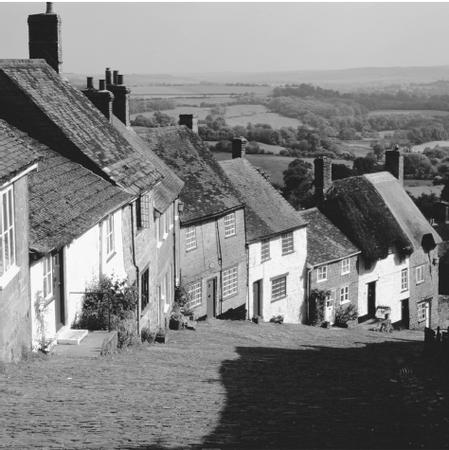Religion
The vast majority of the Chakma are followers of Theravada Buddhism, a religion that they have been practising for centuries. However, their form of Buddhism has aspects of Hinduism and traditional religions as well. Foreign and local missionaries have been trying to convert the Chakmas to Christianity. This has created resentment among the Chakmas.[21]Almost every Chakma village has a Buddhist temple (kaang). Buddhist priests or monks are called Bhikhus. They preside at religious festivals and ceremonies. The villagers support their monks with food, gifts, and offerings to Buddha.
The Chakmas also worship Hindu deities. Lakshmi, for example, is worshipped as the Goddess of the Harvest. Chakmas offer the sacrifice of goats, chickens, or ducks to calm the spirits that are believed to bring fevers and disease. Even though animal sacrifice is totally against Buddhist beliefs, the Chakma Buddhist priests ignore the practice.
Language
- Main Article Chakma language.
Culture
Chakma handicrafts and fabrics are subject to widespread tourist attraction in Chittagong hill region in Bangladesh.
Festivals
The most important festivals celebrated by the Chakmas are Bizu, Alpaloni, Buddha Purnima and Kathin Civar Dan.Chakmas celebrate various Buddhist festivals. The most important is Buddha Purnima. This is the anniversary of three important events in Buddha's life—his birth, his attainment of enlightenment, and his death. It is observed on the full moon day of the month of Vaisakh (usually in May).
On this and other festival days, Chakmas put on their best clothes and visit the temple. There, they offer flowers to the image of Buddha, light candles, and listen to sermons from the priests. Alms (offerings) are given to the poor, and feasts are held for the priests.
The three-day festival known as Bishu, which coincides with the Bengali New Year's Day, is celebrated with much enthusiasm. Houses are decorated with flowers, young children pay special attention to the elderly to win their blessings, and festive dishes are prepared for guests.
Bizu
Bizu is the most important socio-religious festival of the Chakma.This festival gave birth to the Bizu dance.The festival lasts for three days and begins on the last day of the month of Chaitra. The first day is known as Phool Bizu. On this day, household items, clothes are cleaned and washed, food items are collected to give the house a new look with the veil of different flowers. The second day known as Mul Bizu day starts with the bath in the river. People wear new clothes and make rounds of the village. They also enjoy specially made vegetable curry known as "Pazon ton", different homemade sweets and take part in different traditional sports. The day ends with the Bizu dance.The last day, which is known as Gojjepojje din involves the performances of different socio-religious activities. In the context of its nature some say that Bizu is a festival, which revolves around agricultural activities because it is celebrated in mid-April when the earth is just drenched with the first rain and the jum sowing is taken up. And it is believed that with the objective of getting rich harvest worship of the earth was arranged which later on took the form of a festival. However of late it has lost its agricultural character.
Alphaloni
Alphaloni is a most important day for Chakma people.During Alphaloni everyone takes a break from farming because it is harvest season.
In Alphaloni all farmers, are taking rest and give also rest all animals, weapons of farmers, in this day they are eating new food, fruits from jum (harvest), and offering and sharing with other.
This day all people feel happy and enjoy with family, neighbor, relatives etc. to offering new fruits from jum.
It is very historical day for Chakma people; we have celebrated this festival last 2500 years.
It is an old tradition during the king reign of Suddhdhana father of Siddharta. This is old festivel 2500 years ago when the prince Siddharta was meditating under tree, on the other side had celebrating plough festival (Alphaloni) their farmer parents and relatives etc.
During that time he was practicing meditation and seeking an end to all suffering.
Buddha Purnima
It is celebrated on the full moon day in the month of Baisakh.It actually encompasses the birth, enlightenment (nirvāna), and passing away (Parinirvāna) of Lord Buddha. On the day of the worship devotees go to the monastery with Siyong (offerings of rice,vegetable and other fruits and confectionaries). The Buddhist priests known as Bhikkhu lead the devotees for chanting of mantra composed in Pali in praise of the holy triple gem: The Buddha, The Dharma (his teachings), and The Sangha (his disciples). Apart from this,other practices such as lighting of thousands of lamps, releasing of Phanuch Batti (an auspicious lamp made of paper in the form of a balloon) are also done as and when possible.Food
Bamboo shoot is a traditional food of the Chakma people.They call it "Bajchuri".And Shrimp paste is their traditional ingredient of cooking.They call it "Sidol".The staple food of the Chakmas is rice, supplemented by millet, corn (maize), vegetables, and mustard. Vegetables include yams, pumpkins, melons, and cucumbers. Vegetables and fruit gathered from the forest may be added to the diet. Fish, poultry, and meat (even pork) are eaten, despite the Buddhist taboo on consuming animal flesh.
Traditional diets have slowly been abandoned, as the Chakmas have been forced to flee their homeland. Some typical Chakma dishes include fish, vegetables, and spices stuffed into a length of bamboo and cooked in a low fire; foods wrapped in banana leaves and placed beside a fire; and eggs that are aged until they are rotten.
Sports
Gudu hara OR Ha-do-do is a game played throughout the Chakma region. Two teams stand on either side of a central line. They take turns sending a player into opposing territory to touch as many people as he or she can during the space of one breath, while at the same time saying "Ha-do-do." If the player runs out of breath or is caught by his or her opponents, he or she is out.On the other hand, if the player successfully returns to his or her own territory, the players he or she has tagged must leave the game. Other pastimes include Ghilay Hara, a game similar to marbles except that small wooden disks are used instead of marbles; Nadeng Hara, played with a spinning top; and various wrestling games. Girls do not have dolls or play at being "mother" as they do in Western cultures.
From Wikipedia, the free encyclopedia
















